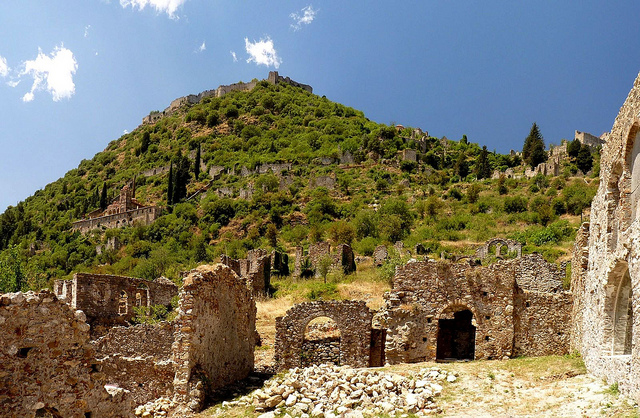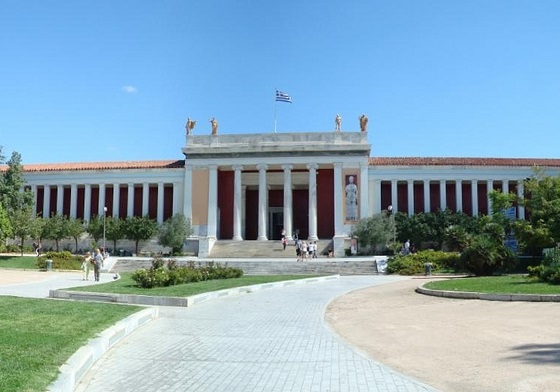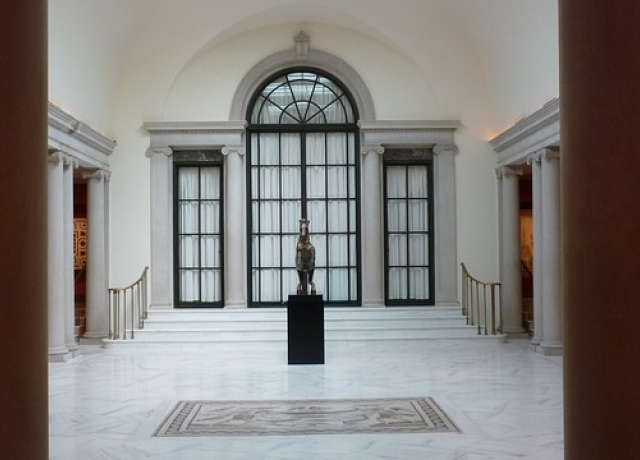Exploring Archaeological Heritage of Greece during EHDs: 3 Museums to Visit this September
Exploring Archaeological Heritage of Greece during EHDs: 3 Museums to Visit this September
European Heritage Days in Greece represent an exciting opportunity for both local people and tourists from all over the world to explore the rich heritage of the country for free. With over one hundred events organised in 2015, Greece had a dynamic last weekend of September with thousands of European Heritage Days visitors gathering at thematic workshops, guided tours and exhibitions.
Focusing on the representation of the country’s industrial heritage, cultural and historic institutions in Greece organised a number of events supporting the EHD theme for 2015. Some of the most memorable ones included an educational programme for students titled “Between Violence and Tolerance” that took place in The Byzantine and Christian Museum, as well as events presenting multiculturalism of traditional music in The Museum of Greek Folk Musical Instruments and a series of thematic talks at The Acropolis Museum in Athens. Celebrating its 6th anniversary, The Acropolis Museum hosted a programme dedicated to exploring “The Mysteries of Great Gods” and this was one of the best attended events in the Greek capital.
In 2016, Greece will join the celebrations of European Heritage Days for the 22nd time and embrace a new perspective on its heritage to match the European Heritage Days tradition. Among the sites and events that will allow for an exploration of archaeological heritage of Greece, three renowned museums traditionally have participated in European Heritage Days for years. Everyone interested in the wondrous archaeology of the country and its contributions to the development of European civilizations is welcome to the exhibitions in the following museums for free.
1. Archaeological Museum of Heraklion
Every year, Archaeological Museum of Heraklion offers a number of unique events for European Heritage Days Visitors. On the last weekend of September, the museum opens its doors for free to offer an opportunity for more people to explore collections dating from the late 19th century BC onwards. Founded in 1935, the museum currently keeps some of the invaluable treasuries of Greek history and culture, thus representing an important site on the European cultural map.
Bull-Leaping Fresco Kept in the Archaeological Museum of Herakleion. Photo credit: Wikipedia
2. The Archaeological Museum of Mystras
Located in the fortified town of Mystra in the Prefacture of Lakonia, Peloponnese, the Archaeological Museum of Mystras was founded in 1952 and contains collections of Byzantine jewellery, pottery, coins, wall paintings and other items that depict life and work of past nations. The museum is an important stop for everyone looking to learn more about both early Christian era and post-Byzantine times. This September, the museum will join dozens of thousands of historical sites in Europe in offering free admissions to European Heritage Days visitors.

Mystras - Citadel - Pantanassa. Photo Credit: Ronny Siegel
3. National Archaeological Museum
The National Archaeological Museum in Athens is a home to various artefacts originating from the most significant archaeological locations across Greece. The museum is listed as one of the world’s most important museums dedicated to ancient Greek art and represents a unique window into the history of the European civilizations. During European Heritage Days, the museum traditionally displays its collections for free and is one of the most attractive places to visit in the entire Athens.

Athens National Archaeological Museum. Photo Credit: placeboe
Visiting Greek museums during European Heritage Days is an inspiring journey through time that allows for an immediate contact with the roots of our civilization. This way, present generations can get better acquainted with the past Europeans share and contribute to preserving it for future.

.JPG)